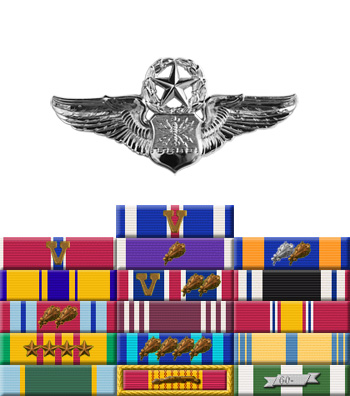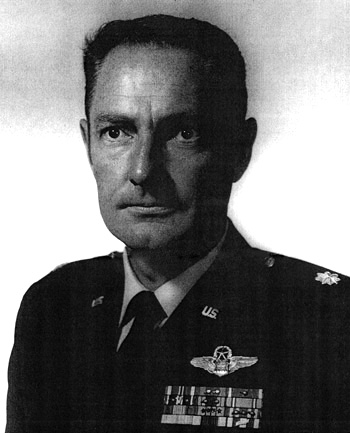
|
Richard E. Johnson |
 |
|||
| Rank, Service | ||||
Lieutenant Colonel O-5, U.S. Air Force |
||||
| Veteran of: | ||||
|
||||
| Tribute: | ||||
Richard Johnson was born on April 27, 1936, in San Francisco, California. He enlisted in the Aviation Cadet Program of the U.S. Air Force on February 18, 1955, and was commissioned a 2d Lt and awarded his Navigator Wings on June 6, 1957. After completing B-47 Stratojet Combat Crew Training he served as a Navigator with the 360th Bomb Squadron at Davis-Monthan AFB, Arizona, from January 1958 to October 1959, when he began B-52 Stratofortress Combat Crew Training and then joined the 340th Bomb Squadron at Blytheville AFB, Arkansas, as a Radar-Navigator. His next assignment was to the 325th Bomb Squadron at Fairchild AFB, Washington, from January 1968 to April 1970, when he returned to the 340th BS at Blytheville. Maj Johnson was forced to eject from his stricken B-52 the first night of Operation Linebacker II, on December 18, 1972. He was captured and after spending 101 days in captivity, he was released during Operation Homecoming on March 29, 1973. Johnson was briefly hospitalized to recover from his injuries at Scott AFB, Illinois, and then received an Air Force Institute of Technology assignment to Memphis State University to complete his bachelor's degree in Business Administration. After completing his degree, Col Johnson returned to Blytheville AFB, where he retired from the Air Force on December 31, 1978. Richard Johnson Flew West on January 29, 2023, and was buried at Memphis Funeral Home and Memorial Gardens in Bartlett, Tennessee. |
||||
|
||||

